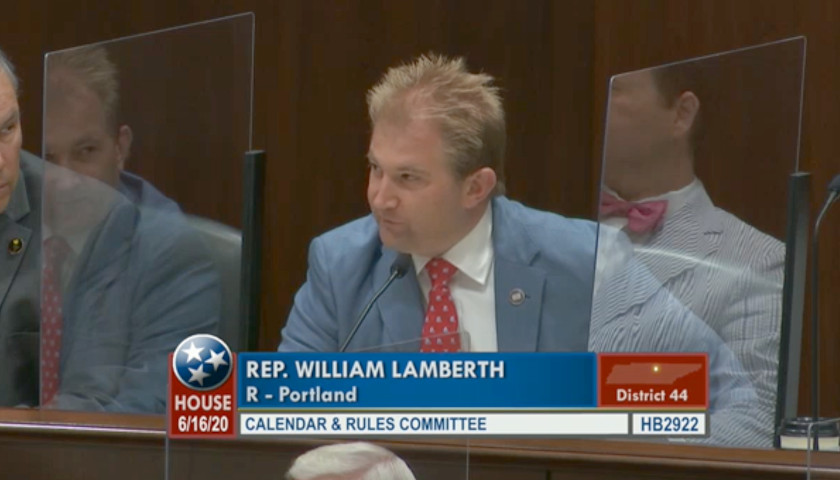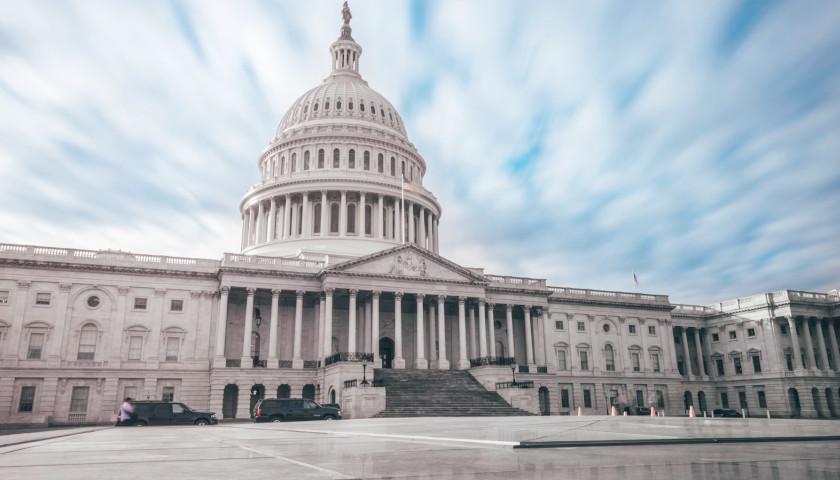As the second session of the 111th Tennessee General Assembly winds down, the House and Senate will need to reconcile their two different budget proposals to close out the current fiscal year and for the upcoming fiscal year 2021.
The Senate version passed with a vote of 27 Ayes, 1 No and 2 Present and Not Voting during the June 11 floor session.
The House, on the other hand, passed their version through the Finance Ways & Means Committee Monday night and is scheduled to be taken up on the floor Wednesday.
During the committee meeting discussion of the appropriations bill HB2922, House Majority Leader William Lamberth (R-Portland) outlined the highlights of the amendments that make the bill, as well as the differences from the Senate version.
Leader Lamberth explained that, whereas the version of the budget passed in March showed no growth, this version actually cuts $1.5 billion out of the budget.
The cuts come over a two-year period, balancing the budget in both years, whereas the Senate version stretches the balancing out over a three-year period.
Leader Lamberth said that in the House version they wanted to “make the cuts necessary, just like all of our businesses and families have cut over the past few months.”
The House version also allows for $100 million in one-time money for an enhanced sales tax holiday.
Currently, the sales tax holiday, held between the last Friday of July through the following Sunday includes clothing, school supplies and school art supplies with a sales price of $100 or less and computers with a sales price of $1,500 or less.
The House-proposed sales tax holiday will be extended for all Tennesseans to take advantage of.
Leader Lamberth explained that making everything a little bit cheaper, “will hopefully instill a lot of confidence in folks to get back out to their restaurants and retail, furniture stores and car lots and everywhere else and get out there and spend money, if they have continued to be employed and have money to spend.”
Not having a good method to send a check for money citizens have paid in, Leader Lamberth said the sales tax holiday is the best way they could think of to “put money back into Tennesseans’ pockets.”
He acknowledged that for years the state has been in surplus territory, adding almost a billion dollars a year in state and federal money to the budget.
“This is an opportunity to give it back to Tennesseans who have paid in,” Lamberth said.
A secondary benefit is that it hopefully creates incentives and boosts sales for Tennessee businesses that have struggled during the COVID-19 shutdown.
Recently, Lt. Governor Randy McNally (R-Oak Ridge) suggested that even the current version of the sales tax holiday could be off the table in order to make up for the expected budget shortfall, The Tennessee Star reported.
Both the House and Senate versions include other cuts to the fiscal 2021 budget, which begins July 1, like the $25 million from the Education Savings Accounts (ESA) program due to the ongoing legal battle.
Another $145,000 was cut from automatic raises for legislators.
Both versions also include $200 million in grants to counties and cities, with the House version specifically listing how much each local government will receive.
The Senate version of the budget retains the elimination of the Hall income tax on the scheduled January 2, 2021, whereas the House version pushes the elimination of the final 1 percent to 2025.
Though the House version is expected to easily pass the Republican majority body, a final version will have to be negotiated with the Senate before the 111th Tennessee General Assembly can adjourn sine die.
– – –
Laura Baigert is a senior reporter at The Tennessee Star. The Associated Press contributed to this report.





